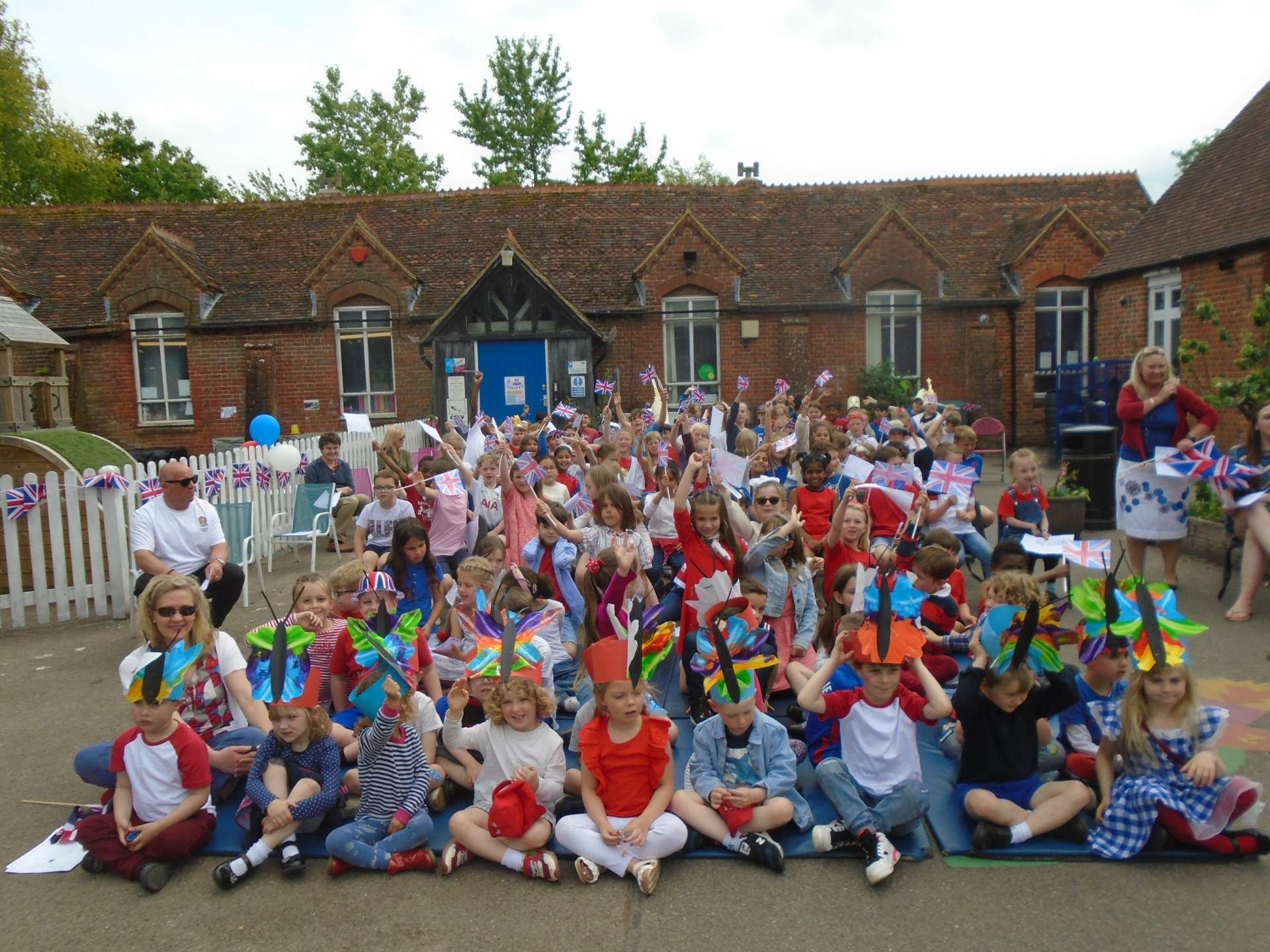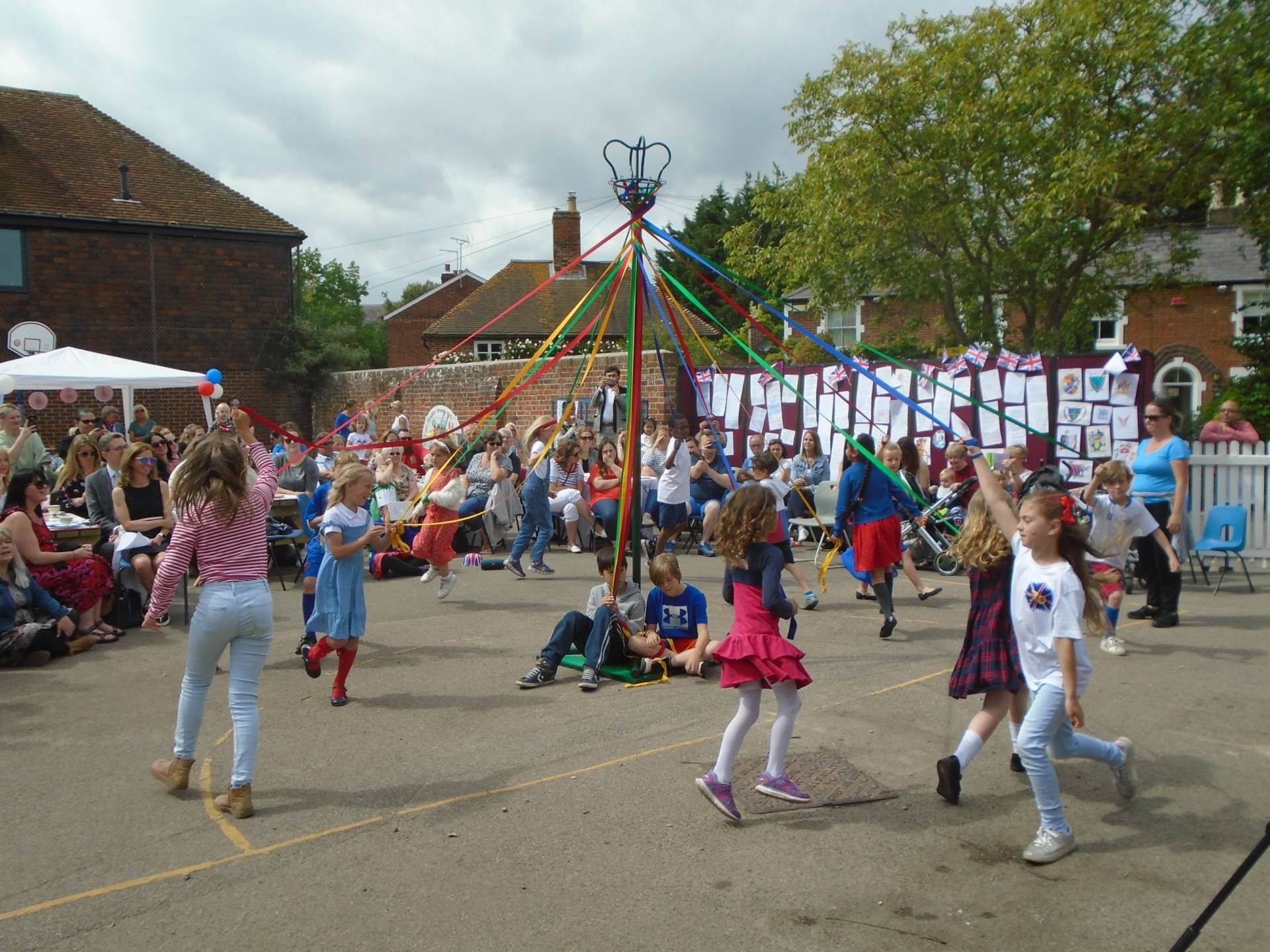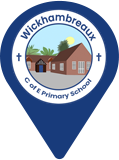British Values

At Wickhambreaux we aim to create a happy safe and creative learning environment that is based on our Church ethos; Love, Trust and Community. We ensure that the fundamental British Values are introduced, discussed and lived out through the ethos and work of our small rural school.
All curriculum areas provide a vehicle for furthering understanding of these concepts and, in particular, WORSHIP, RE, PSHE provide many opportunities to deepen and develop our understanding of what these values mean in practice.
We encourage our children to be creative, unique, open-minded and independent individuals, respectful of themselves and of others in our school, our local community and the wider world.
We aim to nurture our children on their journey through life so they can grow into safe, caring, democratic, responsible and tolerant adults who make a positive difference to British Society and to the world.
British values are an integral part of helping us to achieve these school aims in a global context and society:
-
Democracy
-
Rule of Law
-
Mutual Respect
-
Individual Liberty
- Tolerance for those with different faiths and beliefs
How we promote British Values
-
Through our daily worship

-
PHSE
-
P4C
-
Circle time
-
Religious Education
-
Broad and balanced innovative curriculum
-
History and Geography
-
Respect in our relationships
-
Restorative justice approach to disputes
-
Peer Mediation
-
Project Salus interventions
-
School Council
Democracy
We have our own school council of elected representatives All children are able to put themselves forward to their classmates. Pupils who wish to serve from each class give a presentation to the whole school and a secret ballot is held and pupils are voted for. The council has a dedicated member of staff to guide them in their meetings and they serve for one year. During their term of office the council children are encouraged to debate topics of interest, express their views and make a meaningful contribution to the running of the school on matters that directly involve pupils.
Children also have a voice via the classroom ‘worry’ boxes where they can raise concerns and post it walls where they can share ideas and on occasions vote on issues or make suggestions. Pupils also have the opportunity to have their voices heard through pupil questionnaires and surveys and in circle time.
The principle of democracy is explored in the History and RE curriculum, as well as in worship. The children are active participants in organising an annual remembrance event each year in our Church’s grounds, where they participate in tidying up the memorial with a resident and invite the British Legion to talk to the children (see news section of the website) about personal histories during war time. The school has this year made a visit to the Cathedral and participated in workshops, as well as being invited by the local regiment to play and sing at their annual carol service, as well as the orchestra playing on the balcony for the Archbishop at the annual St Nicholas day parade. The school orchestra and choir are invited to numerous civic events, as are our language gifted and talented group (see news area of website.)
Visits over time have been made to appropriate venues, such as the Houses of Parliament and local council offices, or meetings with local political figures such as the Mayor, have proven to be very enriching experiences.
All opportunities are taken during themed weeks; an example would be during Book Week, when the children used Skype to talk to pupils in Kenya, Florida and Abu Dhabi.
Rule of Law
The importance of laws and rules, whether they are those that govern the class, the school or the country, are consistently reinforced when appropriate or the situation demands.
Pupils have the opportunity to devise ‘Class Rules’, which are then embedded in their school day. Rules and expectations are clear, fair and regularly promoted. Pupils are helped to distinguish right from wrong using a restorative justice approach.
Pupils are helped to respect the law. They are taught the value and reasons behind laws, that they govern and protect us, the responsibilities that this involves and the consequences when laws are broken; this topic arises in the older children’s P4C sessions and in discussing the child’s newspaper “First News,” subscribed to by the school.
Pupils are helped to understand that living under the rule of law protects individuals.
Visits from authorities such as the Police; Fire Service; Ambulance etc. are regular parts of our calendar and help reinforce this message.
The Behaviour and Anti-Bullying policies encourage the restorative justice process to resolve conflict.
The school has zero-tolerance for any form of aggression, abuse or violence, which extends to pupils, staff and parents/carers.
We are committed to praising children’s efforts. Children are rewarded not only for achievement in curriculum areas, but also for behaviour. Rewards are given in the form of stickers and certificates. Children’s achievements are also recognised during Celebration Assemblies.
Individual Liberty
Within school, pupils are actively encouraged, and given the freedom to make choices, knowing that they are in a safe and supportive environment.
For example, by signing up for extra-curricular clubs, choosing the level of challenge in some lessons and becoming increasingly more involved in child-led learning. A further example is where foundation stage children have the opportunity to choose their extended learning through adult guided child initiated play.
As a school we educate and provide boundaries for our pupils to make choices safely, through the provision of a safe environment, a planned curriculum and an empowering education.
Pupils are supported to develop their self-knowledge, self-esteem and self-confidence.
Pupils are encouraged to take responsibility for their behaviour, for example through e-safety.
Pupils are encouraged to know, understand and exercise their rights and personal freedoms and are advised how to exercise these safely, e.g. through e-safety teaching and PSHE lessons.
Freedom of speech is modelled through encouraging pupil participation and risk taking in their learning; also in P4C where they learn to respect the views of others and listen respectfully before disagreeing in a relevant and measured way.
Vulnerable pupils are protected and stereotypes challenged, TGBT pupils are supported as are their parents should the need arise. The school has some pupil members who are challenging their identity.
A strong anti-bullying culture is embedded in the school.
Pupils have key roles and responsibilities in school e.g. Playground Buddies/Sports Crew Coaches, Peer Mediators etc.
Mutual Respect
Respect is one of the core values of our school and can be seen and felt in our pervading ethos. We uphold the principle of mutual respect as a cornerstone of our community. We believe that fostering an environment where every individual is valued encourages positive interactions among peers. This commitment to respect not only enhances our school culture but also prepares our students to engage thoughtfully with the wider world. The pupils know and understand that it is expected and imperative that respect is shown to everyone, whatever differences we may have and to everything, however big or small.
Our dedication to promoting mutual respect extends to nurturing a sense of responsibility towards our environment. We encourage students to take an active role in caring for their surroundings, understanding that their actions can significantly impact our community. Through collaborative projects and initiatives such as the Eco Committee, we aim to instil a lifelong appreciation for the world around them.
Tolerance of those with different faiths and beliefs
The school strongly promotes respect for individual differences of all kinds, supporting within the community those of other faiths.
Pupils are helped to acquire an understanding of, and respect for, their own and other cultures and ways of life; we use whenever available parents of other faiths to talk to pupils about their beliefs
Staff and pupils are encouraged to challenge prejudicial or discriminatory behaviour.
Actively promoting our values also means challenging pupils, staff or parents expressing opinions contrary to fundamental values, including ‘extremist’ views.
Links and visits are promoted with local faith communities and places of worship. E.g. Members of different faiths or religions are invited to school to share their knowledge and enhance learning within assemblies and in class, visits to the Sikh and synagogue places of worship
Through the PSHE and RE curriculums pupils are encouraged to discuss and respect differences between people, such as differences of faith, ethnicity, disability, gender or sexuality and differences of family situations, such as looked after children or young carers.
Worship and discussions provide an appropriate platform examining prejudices and prejudiced-based bullying, which have been followed up in class sessions.
We offer a culturally rich and diverse curriculum in which all major religions are studied and respected and global dimension work embedded in many of our Creative Curriculum Topics in geography which offers many opportunities to study how settlements developed depending on their geographical location.
What is SMSC at Wickhambreaux
Pupils’ spiritual development is shown by their:
-
Participation in worship and Church events and festivals
-
ability to be reflective about their own beliefs, religious or otherwise, that inform their perspective on life and their interest in and respect for different people’s faiths, feelings and values
-
sense of enjoyment and fascination in learning about themselves, others and the world around them
-
use of imagination and creativity in their learning/ willingness to reflect on their experiences and articulate these.
Pupils’ moral development is shown by their:
-
Ability to recognise the difference between right and wrong and to readily apply this understanding in their own lives, recognise legal boundaries and, in so doing, respect the civil and criminal law of England
-
Understanding of the consequences of their behaviour and actions
-
Interest in investigating and offering reasoned views about moral and ethical issues and ability to understand and appreciate the viewpoints of others on these issues.
Pupils’ social development is shown by their:
-
Use of a range of social skills in different contexts, for example working and socialising with other pupils, including those from different religious, ethnic and socio-economic backgrounds
-
Willingness to participate in a variety of communities and social settings, including by volunteering, cooperating well with others and being able to resolve conflicts effectively
-
Acceptance and engagement with the fundamental British Values of democracy, the rule of law, individual liberty and mutual respect and tolerance of those with different faiths and beliefs; they develop and demonstrate skills and attitudes that will allow them to participate fully in and contribute positively to life in modern Britain.
Pupils’ cultural development is shown by their:
-
Understanding and appreciation of the wide range of cultural influences that have shaped their own heritage and those of others
-
Understanding and appreciation of the range of different cultures within school and further afield as an essential element of their preparation for life in modern Britain
-
Knowledge of Britain’s democratic parliamentary system and its central role in shaping our history and values, and in continuing to develop Britain
-
Willingness to participate in and respond positively to artistic, musical, sporting and cultural opportunities
-
Interest in exploring, improving understanding of and showing respect for different faiths and cultural diversity and the extent to which they understand, accept, respect and celebrate diversity, as shown by their tolerance and attitudes towards different religious, ethnic and socio-economic groups in the local, national and global communities.





